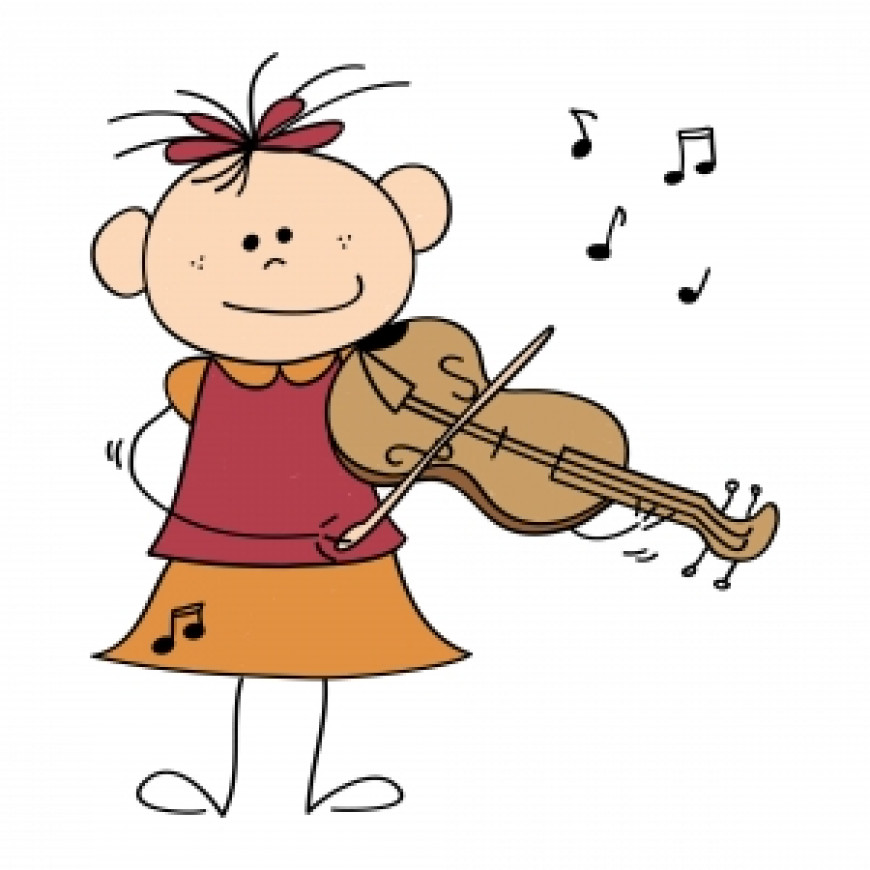Fit as a Fiddle: Positive Health Benefits of Music Education

Little did I know how much music would influence my life the day I first set my fingers on a piano keyboard. I first began piano lessons when I was five years old, my feet barely able to touch the pedals. Not only did I take weekly lessons, but I also participated in competitions and took annual listening and music theory exams. Soon, I started playing cello and French horn, as well as taking horseback riding, fencing, and dance lessons. Although I eventually decided to pause my music education once I entered into high school so that I could focus more on dance, I am still determined to pick piano back up sometime during my remaining college years and to also eventually learn guitar.
Even though I may not necessarily currently be an active musician, my music education has affected all areas of my life. Yes, it has taught me how to read music in all clefs and to remember the order of sharps as Fat Cats Go Down And Eat Birds, but it has also taught me dedication, focus, and passion, which have all contributed to the work ethic that I pride myself on today. It has aided me in school because I use rhythmic techniques to help my memorization. It has even supported my dance education because of my abilities to naturally hear counts, phrasing, and musicality.
Use Your Whole Brain
But there are still health benefits of music education, other than the benefits of creativity and expression. Studies, such as the one conducted by Laurel Trainor, the director of the Institute of Music and the Mind at McMaster University in Ontario, have shown that improved cognitive function, increased language development, and positive social interaction are all linked to music education. Perhaps this is because music performance engages both the right and left hemispheres of the brain.
Most often, musicians are thought of as being “right-brained” because the right hemisphere is the more creative and abstract side of the brain. But musicians are also “left-brained” even though the left hemisphere is linear and analytical. Musicians use the right hemisphere for melody and artistry, and they use the left brain for understanding musical structures and for using motor skills. The bilateral nature of music performance and education shows that musicians have better memory, language, and cognitive skills than non-musicians. Learning to play a musical instrument not only makes you a well-rounded person, but it also gives you a well-rounded brain.
Not Just For Kids
It is commonly known that young children have a greater capacity for learning foreign languages than adults, but this may also be true for music. An 18-month-long German study conducted on 73 boys and girls aged 7-8 shows that the children who had weekly music lessons and practiced regularly at home had a greater increase on every measure of verbal memory.
It is often thought that music education should occur at an early age, but a study on adolescent brains by Drs. Frances Jensen and David Urion, both from the Children’s Hospital Boston and Harvard Medical School, reveals that the neural networks that help neurons communicate and facilitate learning are enlarging in teenagers. In other words, like young children, teenagers are also able to easily learn to play a musical instrument. Even though moody teenagers refuse to communicate with their words, at least they can communicate with their music.
Although many studies that indicate the relationship between music education and brain function are conducted on children and teenagers, other studies show that it is never too late to learn to play a musical instrument. Brenda Hanna-Pladdy, a neuropsychologist at the Emory University School of Medicine’s Department of Neurology, led a recent study in 2012 that shows music education may help reduce memory decline and cognitive aging. Older musicians compared to older non-musicians possess improved cognitive functions, including verbal skills and memory. The study also offers evidence that musicians between the ages of 60-80 who have played a musical instrument for at least 10 years at any point during their life have sustained cognitive benefits; this shows that the advantages of music education do not actually depend on continued and constant activity.
So instead of seeking magical anti-aging solutions, if you really want to learn how to battle the effects of aging, learn to play a musical instrument! The bottom line is that it is beneficial to exercise the skills required of music performance and education no matter what age you are.
To Live and Learn Music
All these studies back up why people with stutters often have no trouble while singing or people with autistic disorders often respond well to music therapy. Although I don’t have a stutter or autism, they also back up why I am the person that I am today. If the health benefits of music education are not enough to convince you to play a musical instrument, at least take comfort in the fact that music is a creative outlet for self-expression. So not only did I play out my frustrations and joys in life on the piano, but it also improved my brain function. No wonder my brain knew that I should keep practicing. As shown by people like myself who used to play a musical instrument but don’t anymore (for now), you can carry both the physical and emotional rewards of music education for the rest of your life.
Celebrate Labor Day by nurturing your creative side. Book lessons totalling $200 or more and take $20 off by using the code musical20 at the checkout. Or, book $100-200 in lessons and take $10 off with the code musical10. Offer good for bookings made on or before Wednesday, September 9, 2015, and cannot be combined with other offers.
This article was originally posted on May 21st, 2013. We are bumping it back to the top in celebration of back-to-school season!
Related:
Sources
http://funmusicco.com/research-into-the-benefits-of-music/how-does-music-stimulate-left-and-right-brain-function-and-why-is-this-important-in-music-teaching/
http://www.belmarrahealth.com/brain-function/how-music-triggers-brain-function-and-memory/
http://www.livescience.com/7950-music-improves-brain-function.html
http://news.emory.edu/stories/2012/07/hanna_pladdy_music_brain/campus.html
http://harvardmagazine.com/2008/09/the-teen-brain.html




